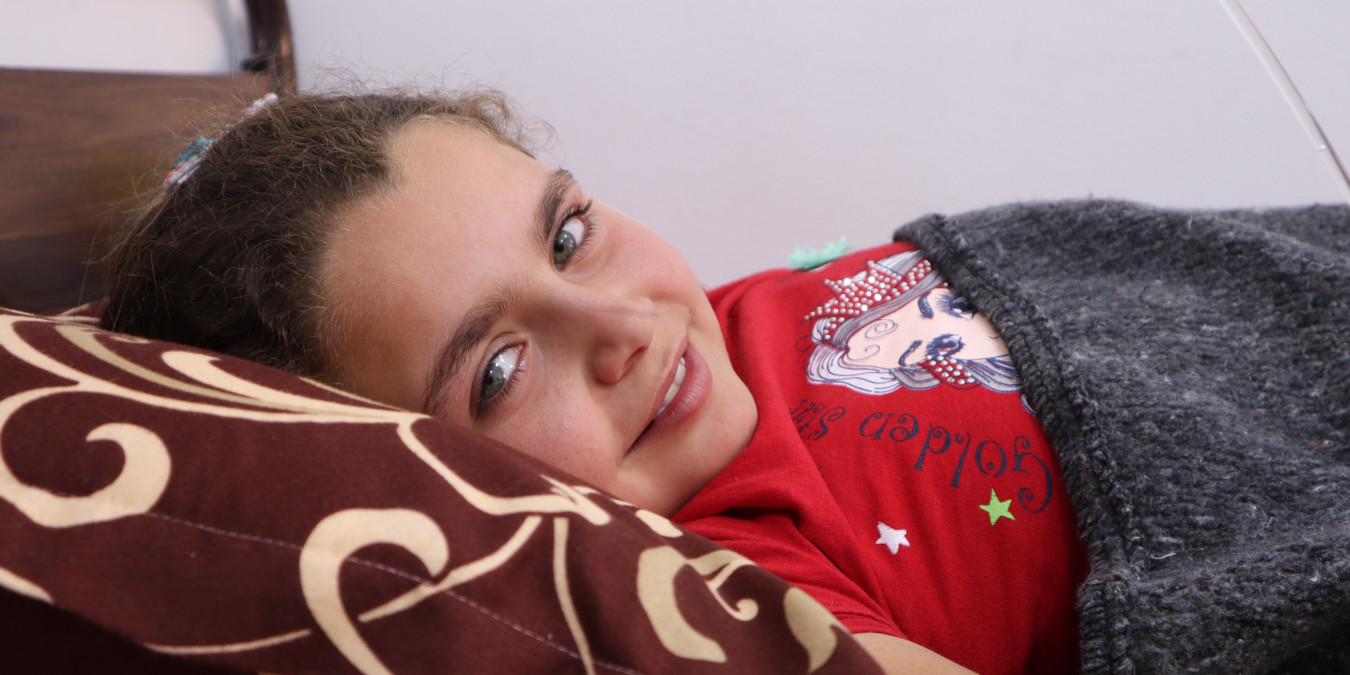Providing Free Medical Care for Syrian Children
Published: Aug 15, 2022 Reading time: 3 minutes Share: Share an article11 years of war in Syria has resulted in a critical lack of vaccines and the subsequent re-emergence of diseases doctors thought banished, like meningitis, measles, and polio. The widescale destruction and neglect of health services has made it harder for health workers to address the problem. To help turn things around, in northern Syria PIN is working with its partners to rehabilitate a paediatric ward to ensure children can access free public healthcare.

Aya, only 10 years old, has been hospitalised with a severe case of meningitis. “I have a headache, and I can’t see clearly,” she said
The first-floor paediatric ward, where Aya was admitted, was only recently refurbished with support from PIN. Before the construction teams arrived, the first floor was bombed-out; a skeletal husk. There were no doors, the windows were shattered and the corridors were falling to pieces.
PIN’s teams installed the windows and doors, repainted the walls and installed new ceramic tiles. They also refurbished the ward with furniture. The first floor was soon transformed into a fully functioning extension of the hospital below.
This is the only hospital providing free paediatric healthcare in the region, so its refurbishment has proved a major boon for the local community. The hospital comprises three stories, rising out of the surrounding city like a monolith. Four years ago, the ground floor reopened out of necessity, to provide much needed healthcare for local residents.
As medicine prices increase, public health services have to step up
The price of medicine has increased tenfold in Syria since the war began, and many hospitals and health centres never reopened. Aya’s mother explained, “We had to look for a public hospital that provides services for free, otherwise we would have had to go to the private hospitals that are very expensive. When my daughter got sick, I was planning to sell all furniture in my house to go to a private hospital.”
On the same floor, Raghib, only five months old, is being treated for pneumonia.
While the hospital provides vital support for the area, its services are overstretched. Staff treat between 100 and 150 children per day, providing them with the medicine they have available. Shortages of medicine and equipment however, mean that sometimes doctors must rely on less effective alternatives.
In the most serious cases, like Aya and Raghib, the children will be admitted to the paediatric ward when a bed becomes free. At these moments, timing is everything. Mais, a nurse at the hospital, said, “In critical cases, there are golden minutes, and the response must be very fast in order to save the patient's life.”
Providing timely medical care is essential, but is a challenge when the hospital has so many people to assist. “People come from everywhere in the city and countryside, but the population is very big,” said Mais.
The refurbished hospital ward is equipped to receive 10 children at present, but within the next six months, PIN hopes to equip all the available rooms to provide medical care for the ward’s maximum capacity of 34 children.
